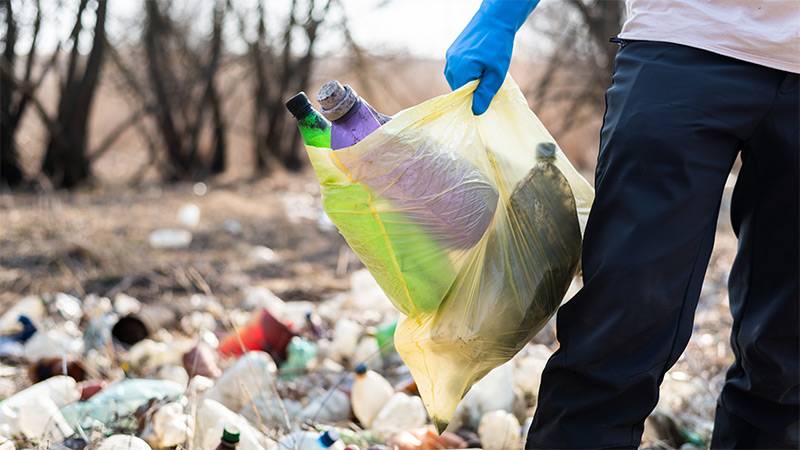In Lagos, Nigeria, the issue of plastic waste has become a pressing environmental concern, particularly evident in the aftermath of rainfall. Streets in areas like Oshodi Isolo are often flooded, leaving behind a trail of plastic debris that hampers mobility and accelerates road deterioration. Maryam Lawani, a local resident, deeply troubled by this recurring problem, embarked on a mission to address the crisis of plastic pollution, which is a global challenge.
The United Nations reports that the world produces approximately 430 million tonnes of plastic annually, contributing significantly to pollution. Nigeria is a major contributor to this problem, generating about 2.5 million metric tonnes of plastic waste each year, with a significant portion ending up in water bodies. This situation is exacerbated in Lagos, Nigeria’s most populous city, where inadequate waste management infrastructure leads to blocked drainage systems and increased pollution.
Despite Nigeria’s efforts, such as the 2020 launch of the Nigeria Circular Economy Policy aimed at promoting sustainable waste management, challenges persist. According to Olumide Idowu, executive director for International Climate Change Initiative, effective waste collection and recycling facilities are still needed. He suggests that strengthening regulations and addressing the large population’s impact on enforcement are crucial steps.
The importance of individual and collective action in addressing these issues is highlighted by various environmental advocates. Adenike Titilope Oladosu, founder of ILead Climate, emphasizes the role of recycling in engaging youth and promoting a sustainable future. Moreover, there’s a growing recognition of the economic opportunities in upcycling, with waste being seen as a potential currency to address poverty and unemployment.
“We need to make people understand that climate change is real, and it will affect everyone regardless of where they live, Ajegunle or Lekki,” [Climate Lead’s Oladosu] said. “We can all feel the heat of the sun, the impact of flooding, etc. There are different angles to mitigating climate change and recycling is just one. Another is responsible consumption. There is a need for everyone to be climate and environmentally conscious.
Lawani’s Greenhill Recycling, founded in 2015, is a testament to this approach. The company recovers 100-200 tonnes of waste monthly and provides supplemental income to locals by paying them for trash collection. This initiative not only cleans the community but also promotes a sustainable way of living.
According to Aljazeera, other women-led upcycling and recycling ventures in Nigeria include RESWAYE (Recycling Scheme for Women and Youth Empowerment) and the nonprofit Foundation for A Better Nigeria (FABE). These organizations focus on community involvement, educating the youth, and promoting sustainable practices such as recycling, upcycling, and composting.
Despite these efforts, ignorance and indifference towards environmental issues remain widespread in Nigeria. The habit of littering is still common, and there’s a need for greater awareness and behavioral change, particularly among the less privileged. Lawani and others believe in the importance of education and sensitization, starting with young children, to foster a deeper understanding of environmental issues and their impact on everyday life.
This movement in Nigeria, with women at the forefront, represents a significant stride towards environmental sustainability. It not only addresses the pressing issue of plastic pollution but also opens avenues for economic growth and community empowerment. The success and expansion of such initiatives could pave the way for a cleaner, greener, and more prosperous Nigeria.
More inspiring green news similar to this:


